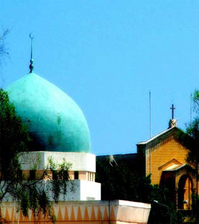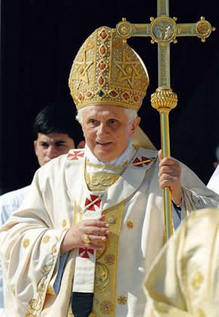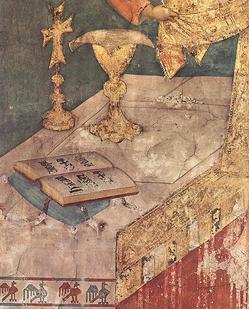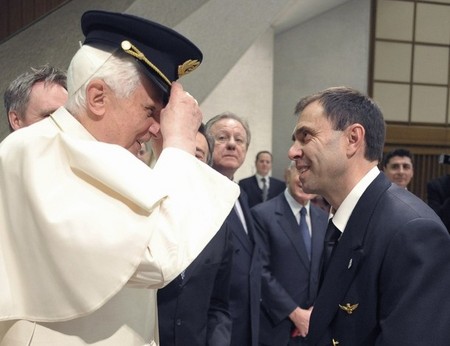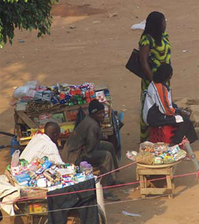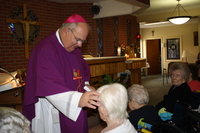In early June, Pope
Benedict XVI travesl to Cyprus, the third largest island in the Mediterranean
and a mixed group of religions. He’s making a pastoral visit where he will give
the Middle East bishops the Instrumentum laboris (the working document focusing
the meeting) of the Synod of Bishops on the Eastern Churches due to be held
next October in the Vatican. This is yet another example of the Pope reaching out to the local Catholic churches and to the Orthodox Christians, Muslims and political leaders. It is hard for me to say this is a strategic visit but it certainly opens the mind that there are significant reasons in the pope’s mind as to why Cyprus and not another mixed culture. A good reason may be that he’s been to the Holy Land already and that neither Lebanon, Egypt nor Syria are willing to host the pope. At any rate, Cyprus is a logical choice because of the confluence of faith and reason.
For those who don’t know, Cyprus has a small
Catholic community of the Maronite and Latin Churches. The Latin Church is
governed by the Latin Patriarch of Jerusalem, His Beatitude, Archbishop Fouad
Twal, and for centuries have been assisted by the Franciscan friars of the
Custody of the Holy Land. Giampiero Sandionigi’s interview with Franciscan Father
Umberto Barato, a parish priest in Nicosia and Vicar General for Cyprus of the
Latin Patriarchate follows in brief.
Father Barato, the Pope receives
invitations from many governments and episcopates but cannot accept them all.
How do you explain his decision to come to Cyprus, an island with, after all, a
fairly small Catholic community?
I don’t know how many invitations the Pope
receives and from how many countries. I only know that he decided to accept the
invitation of the Orthodox Archbishop of Cyprus, Chrysostomos II, and the
President Dimitri Christofias. There had been a precedent and perhaps that also
counted: John Paul II had wanted to visit the island but, due to questions of
time and the Pope’s poor health, he never made the journey. It is true that the
Catholic community in Cyprus is small, but I do not think that this is a
contra-indication. However that may be, I believe that Benedict XVI decided to
make the visit prior to the Synod on the Middle East. In addition, he will also
have thought about the political and religious situation of the island. It’s
not that the Pope can solve the problem of the division of Cyprus or tell the
leaders what they should do, but his presence can give courage and a positive
impulse to relations between the two sides.
When the trip was announced, some
people imagined that it would have particular consequences on ecumenical
dialogue at a European, or even global, level. What do you think about this?
What are the daily relations between Catholics and Orthodox like in Cyprus, and
with the Turkish Muslim minority?
It’s natural that people think like that.
Going to a country with an Orthodox majority, it is obvious that some people
think that the meeting between the Pope and the leaders of the local Church can
be ecumenical in character, that it is like a step ahead in the encounter,
understanding and reciprocal acceptance. However, I do not believe that it can
go further. I expect that after the visit, relations between the Catholic and Orthodox
Churches in Cyprus will become even closer. They are already excellent and at a
level that I do not believe can be found elsewhere in parts of the world where
the two Churches coexist. I’ll pass over the minor difficulties that sometimes
we come up against. In general, these are the fruit of ignorance or prejudice
fuelled by the long separation and reciprocal non-recognition between the two
sides. The positive fact is that the Catholic Church in Cyprus is accepted,
recognized and esteemed for its work of apostolate and education. There are
already some forms of collaboration, but the Pope’s visit will certainly be a
privileged occasion for the bonds to become even closer. With the Muslims, on
the contrary, we have no relations.
